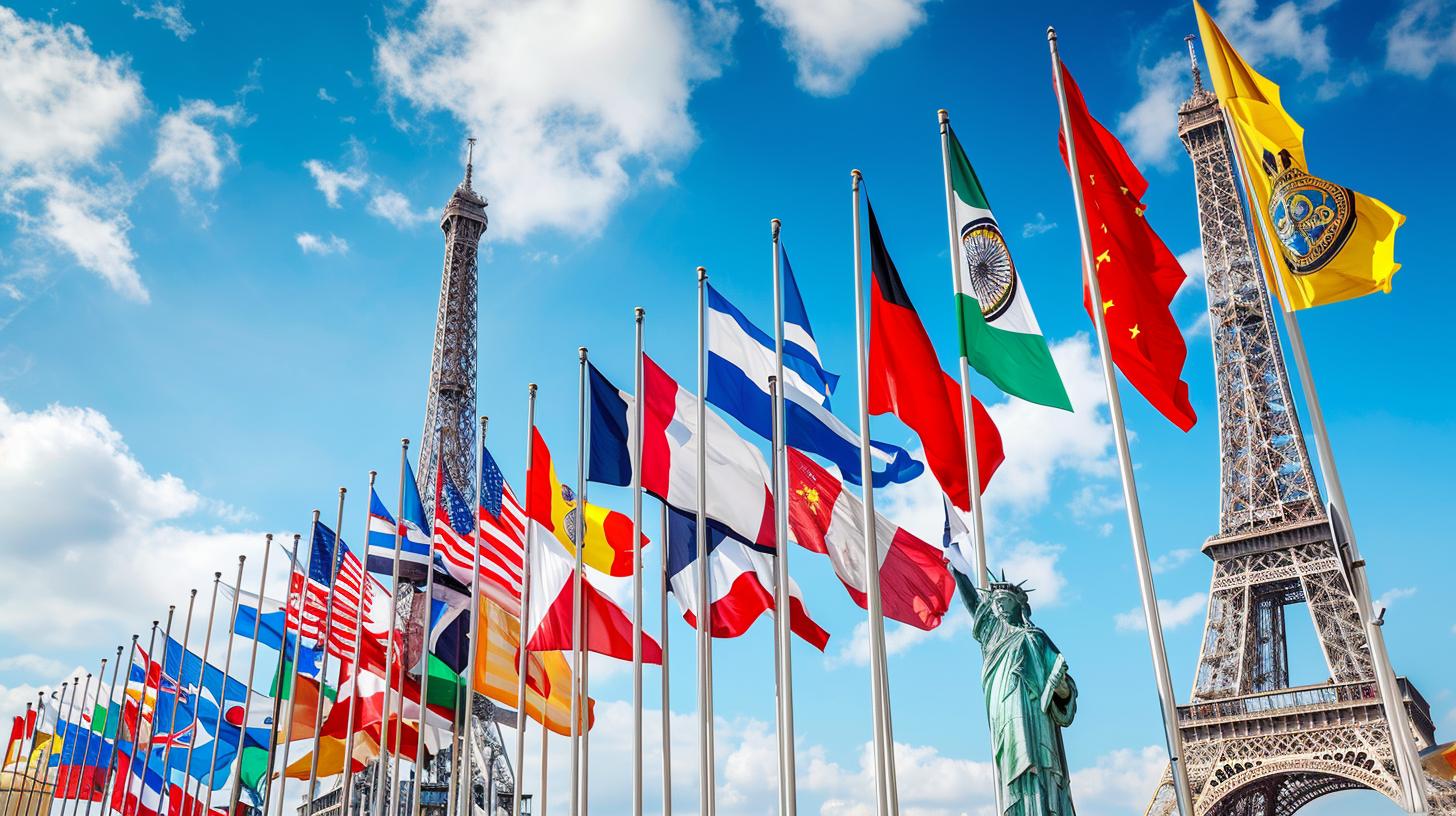Dating someone from a different cultural background can be an exciting and rewarding experience. However, it can also present unique challenges that require cultural sensitivity. In this article, we will discuss the significance of cultural sensitivity in multi-cultural dating and provide practical tips for developing this skill.

Understanding Different Cultures
One of the most significant challenges of dating someone from a different cultural background is appreciating and understanding their culture. Cultural sensitivity means recognizing and accepting cultural differences without judgment. It is essential to appreciate that different cultures have varying values, beliefs, and customs that may impact how your partner approaches relationships.
Cultural sensitivity is essential for overcoming these challenges and establishing a lasting relationship. By showing an interest in and respect for your partner’s culture, you can deepen your connection and foster a more fulfilling relationship. For instance, if your partner comes from a collectivist culture where family is vital, you may need to adjust your expectations about how much time they spend with their family.

Why Cultural Sensitivity is Important in Multi-Cultural Dating
- Cultural sensitivity is crucial in multi-cultural dating relationships.
- Understanding different cultures, overcoming stereotypes, effective communication, respect for cultural differences, learning about a partner’s culture, and dealing with cultural conflicts are key sections to foster cultural sensitivity.
- Promoting cultural sensitivity, embracing diversity, and celebrating cultural differences can lead to stronger relationships.

Overcoming Stereotypes and Prejudices
Stereotypes and prejudices are deeply ingrained in our society and can be particularly damaging in multi-cultural relationships. These negative attitudes can lead to misunderstandings, hurt feelings, and even the breakdown of a relationship. It is vital to challenge assumptions and biases and foster cultural sensitivity.
Common stereotypes and prejudices that may arise in multi-cultural relationships include assumptions about food, language, and personality traits. For example, you may assume that your partner’s food is “weird” or “gross” because it is unfamiliar to you. This type of thinking can be hurtful and dismissive of your partner’s culture. Instead, try to approach new experiences with an open mind and a willingness to learn.

Effective Communication in Multi-Cultural Relationships
Effective communication is essential in all relationships, but it is particularly important in a multi-cultural context. Different cultures may have different communication styles, which can lead to misunderstandings and hurt feelings. It is important to be aware of these differences and to take steps to improve communication.
One key strategy for improving communication in multi-cultural relationships is active listening. This means listening carefully to your partner and trying to understand their perspective. It also means asking questions and clarifying any misunderstandings. Another important strategy is to be aware of nonverbal communication, such as eye contact and body language, which can vary across cultures.

Respect for Cultural Differences
Respect for cultural differences is another crucial aspect of cultural sensitivity. This means being open to different ideas and ways of doing things without judging them. It is important to recognize that there is no “right” or “wrong” way to approach relationships and that different cultures may have different values and priorities.
One key strategy for demonstrating respect is to adopt a non-judgmental attitude. This means refraining from criticism or negativity about your partner’s culture. Instead, try to approach new experiences with curiosity and an open mind. Another important strategy is to be aware of cultural differences around gender roles, religion, and other sensitive topics, and to approach these topics with sensitivity and respect.
Learning About Your Partner’s Culture
One of the most rewarding aspects of dating someone from a different cultural background is the opportunity to learn about their culture. By showing an interest in your partner’s culture, you can deepen your connection and create a more fulfilling relationship. Learning about your partner’s culture can also help you to understand and appreciate their perspective.
There are many strategies for learning about your partner’s culture. One approach is to attend cultural events, such as festivals or concerts, and to try new foods. Another approach is to learn the language if your partner speaks a different language than you. You can also read books or watch documentaries about your partner’s culture. By taking an active interest in your partner’s culture, you can demonstrate your respect and appreciation.
Dealing with Cultural Conflicts
Cultural conflicts are a common challenge in multi-cultural relationships. These conflicts may arise around issues such as religion, gender roles, or family obligations. It is important to approach these conflicts with empathy and understanding, rather than judgment or criticism.
One key strategy for resolving cultural conflicts is compromise. This means finding a solution that works for both partners, even if it means making some concessions. Another important strategy is empathy, which means trying to understand your partner’s perspective and feelings. It is also important to communicate openly and honestly about your needs and feelings, while also being respectful of your partner’s perspective.
The Importance of Cultural Sensitivity: A Personal Story
In my early twenties, I met a woman named Maria at a local coffee shop. We immediately hit it off, and after a few dates, we decided to make things official. Maria was originally from Mexico, and I was born and raised in the United States. As our relationship progressed, we encountered some challenges that stemmed from our cultural differences.
One particular challenge we faced had to do with our families. Maria came from a close-knit family that placed a strong emphasis on tradition and family values. I, on the other hand, came from a more individualistic family that placed less emphasis on tradition and more on personal achievement. When Maria invited me to a family gathering, I was initially hesitant. I felt uncomfortable with the idea of being surrounded by people I didn’t know and engaging in customs that were unfamiliar to me.
However, Maria was patient and understanding. She explained the significance of the gathering and assured me that her family would welcome me with open arms. I decided to attend the gathering, and it turned out to be a wonderful experience. I learned so much about Maria’s family, their traditions, and their values. I also gained a new appreciation for the importance of family and community.
This experience taught me the importance of cultural sensitivity in relationships. It’s not enough to simply be aware of cultural differences; we must also be willing to embrace and respect them. By doing so, we can deepen our understanding of our partners and foster stronger, more meaningful relationships.
Conclusion
In conclusion, cultural sensitivity is a crucial skill for navigating the challenges of multi-cultural dating. By being aware and accepting of cultural differences, overcoming stereotypes and prejudices, improving communication, and respecting cultural differences, you can create a more fulfilling and authentic relationship. Learning about your partner’s culture and dealing with cultural conflicts with empathy and understanding can also deepen your connection. As a curious cross-cultural dater, it is important to embrace diversity and celebrate cultural differences in your relationships.
If you want to learn more about cultural sensitivity and multi-cultural relationships, there are many resources available. One great resource is Global Cognition, which provides a comprehensive overview of the concept and its importance. The Community Tool Box is another useful resource, providing guidance for diversity and inclusion training in the workplace. By continuing to learn and grow in your cultural sensitivity, you can build more authentic and inclusive relationships.
Insider Tip: Remember that cultural sensitivity is not just about being respectful to your partner’s culture but also about accepting them as a person. Focus on building a genuine connection and understanding their perspective, and you will be on the right track to a successful multi-cultural relationship.
FAQs
What is cultural sensitivity in multi-cultural dating?
Cultural sensitivity is the ability to respect and understand different cultural norms and values.
Who needs to be culturally sensitive in multi-cultural dating?
Both partners need to be culturally sensitive to create a harmonious relationship.
How can cultural sensitivity improve multi-cultural dating?
Cultural sensitivity can improve communication, prevent misunderstandings, and strengthen the relationship.
What if my partner’s cultural beliefs clash with mine?
Acknowledge and respect the differences. Discuss and find common ground to build a healthy relationship.
How can I learn about my partner’s culture?
Ask questions, do research, participate in cultural events, and show genuine interest in their traditions.
What if I unintentionally offend my partner’s culture?
Apologize sincerely and learn from the experience. Use it as an opportunity to deepen your cultural understanding.




